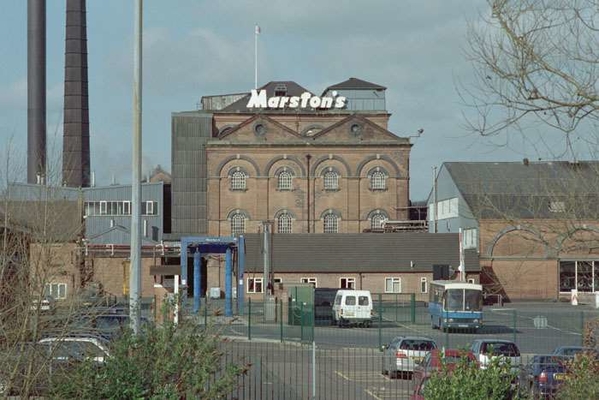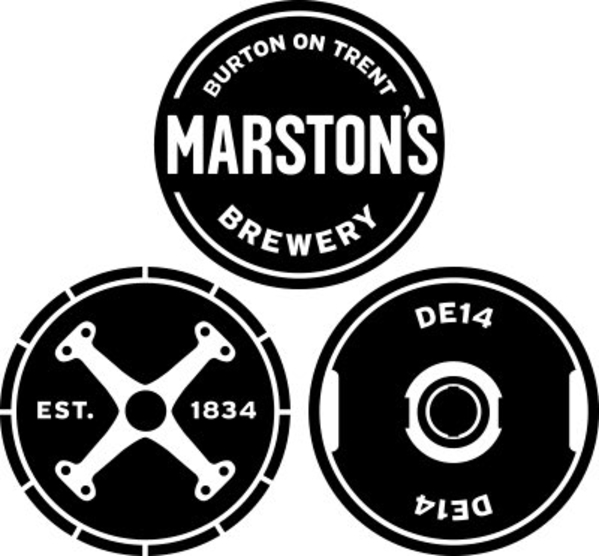Merger: will Marston's lose its pedigree?
Added: Saturday, May 23rd 2020

The tectonic plates of the brewing industry have shifted yet again. The creation of the Carlsberg Marston’s Brewing Company on 22 May means the top echelon of the industry is now firmly in the hands of global brewers or property groups.
Three major breweries of similar size have dramatically changed their structure and ownership in the past year. In April 2019 Fuller’s of West London sold its Chiswick brewery to Asahi of Japan but retained its large estate of pubs and hotels.
Six months later, in October 2019, Greene King of Bury St Edmunds, Suffolk, was bought by the Hong Kong based property group CK Asset Holdings. This time there was no division of the spoils: CK owns both Greene King’s brewery and its pub estate.
The Carlsberg/Marston’s deal is more complex but it gives the upper hand to Carlsberg, who will control 60 per cent of the business if the deal is approved by shareholders and the regulatory authorities. Under the terms of the deal, Marston’s breweries are valued at £580 million while Carlsberg, with its brewery in Northampton, is valued at £200 million.
Marston’s will receive a payment from Carlsberg of £273 million, which will go some way to easing the company’s crippling level of debt, running at £1.4 billion.
The key considerations for beer drinkers are the future of Marston’s brands and breweries. Its breweries are:
•Marston’s, Burton-on-Trent
•Banks’s, Wolverhampton
•Ringwood, Hampshire
•Jennings, Cockermouth, Cumbria
•Wychwood/Brakspear, Witney, Oxfordshire
•Eagle, Bedford
The devil in the detail of the merger is the dread word “synergies”. The merger document says “annual synergies of £24 million will be achieved by the end of the third year” of the new company. That means costs will be reduced by running the accountant’s slide rule over existing brewing plants and brands portfolio.
Carlsberg has a poor reputation for keeping traditional breweries open. Its architecturally stunning brewery in Copenhagen, fronted by the famous Elephant Gates, is now a museum, visitor centre and hotel. It had earlier closed the Tuborg plant.
In Britain, the company was known for a period as Carlsberg Tetley but the historic Leeds brewery was closed and Tetley Bitter, a Yorkshire ale to its bootstraps, is now brewed at Camerons. Only fading insignia remain as its once glorious legacy.

Marston’s has a large number of successful brands in its locker. They include the flagship Marston’s Pedigree, fermented in giant oak casks in the world-famous Union Rooms at Burton. Other big brands are Banks’s Mild and Bitter from Wolverhampton; Hobgoblin from Wychwood; Wainwrights’s; Young’s Ordinary and Special bitters brewed for the Young’s pub estate in London and the South-east; Bombardier from the former Charles Wells’s range; Courage Best; and the McEwan’s and Younger’s beers that are major sellers in Scotland.
The major question mark hangs over Jenning’s brewery in Cumbria. Marston’s, to its credit, has invested several million pounds in the plant following recent floods. But the remote location of the brewery and its precarious position alongside the confluence of two rivers liable to flood must raise doubts about its long-term viability.
The Burton brewery not only houses the Union Rooms and an ultra-modern bottling and canning line but also has a micro plant where new beers are trialled. The major worry at Burton is whether Carlsberg will be happy for Marston’s to brew Draught Bass under contract to the Danish brewer’s arch global rival, AB InBev. Draught Bass could be on the move again and the concern will be which independent breweries would have the capacity to take it on.
Wolverhampton is a major plant that produces Banks’s Mild and Bitter and a host of other beers, including Wainwright’s.
Marston’s tells me the Ringwood brewery in Hampshire is “flying” and the Wychwood plant in Oxfordshire is brewing to full capacity. With over-capacity rife throughout the industry, there must be concern about the long-term future of the former Charles Wells’s brewery in Bedford, now called the Eagle Brewery.
Marston’s bought the brewery in 2017 for £55 million and it would seem odd to axe such a recent acquisition, especially as the plant can produce lager as well as ale. But will Carlsberg want Kirin lager to compete with its own beer in the tied and free trade?

The bottling and canning lines have already been removed from Bedford and there is now a dark cloud hanging over the site that comes from outside the industry.
Bedford Council has produced a detailed strategic plan for the future of the town. It would like to build modern housing in the Havelock Street area where the brewery stands and it has posed the question as to whether housing and brewing are compatible. The beers produced at the Eagle site could be incorporated elsewhere within the group and Charles Wells, which is building a new brewery on the edge of the town, might consider buying back its former Eagle Bitter and Bombardier brands.
Marston’s will also be able to call on the London Fields brewery in East London, bought by Carlsberg in 2017, for short-run craft beers.
The future of breweries and brands can be only speculative at present. What is irrefutable is the threat to smaller brewers posed by the merger, a threat highlighted by James Calder, chief executive of SIBA, the independent brewers’ group, as soon as the merger was announced.
Marston’s says its free trade business will double as a result of the merger. That’s bad news for smaller competitors who will be frozen out of free trade accounts in the on trade and off trade.
Giant brewers have lower production costs than their smaller rivals as they can buy raw materials in bulk at cheaper prices. As a result, their beers to the off trade, supermarkets in particular, are cheaper than their competitors and they can afford to pay the deep discounts demanded by the large grocers.
It’s notable that since Camden Town became part of AB InBev and Beavertown has given Heineken a large minority stake their beers have been much more prominent in supermarkets. The new merger means that Carlsberg and Marston’s beers can be delivered from the same trucks and will take up more of the limited space on supermarket shelves.
Marston’s shares rocketed when news of the merger broke. It’s clearly good news for shareholders. Whether it’s good news for consumers, with the future of popular and even historic beers and breweries in the balance, is much more doubtful.





